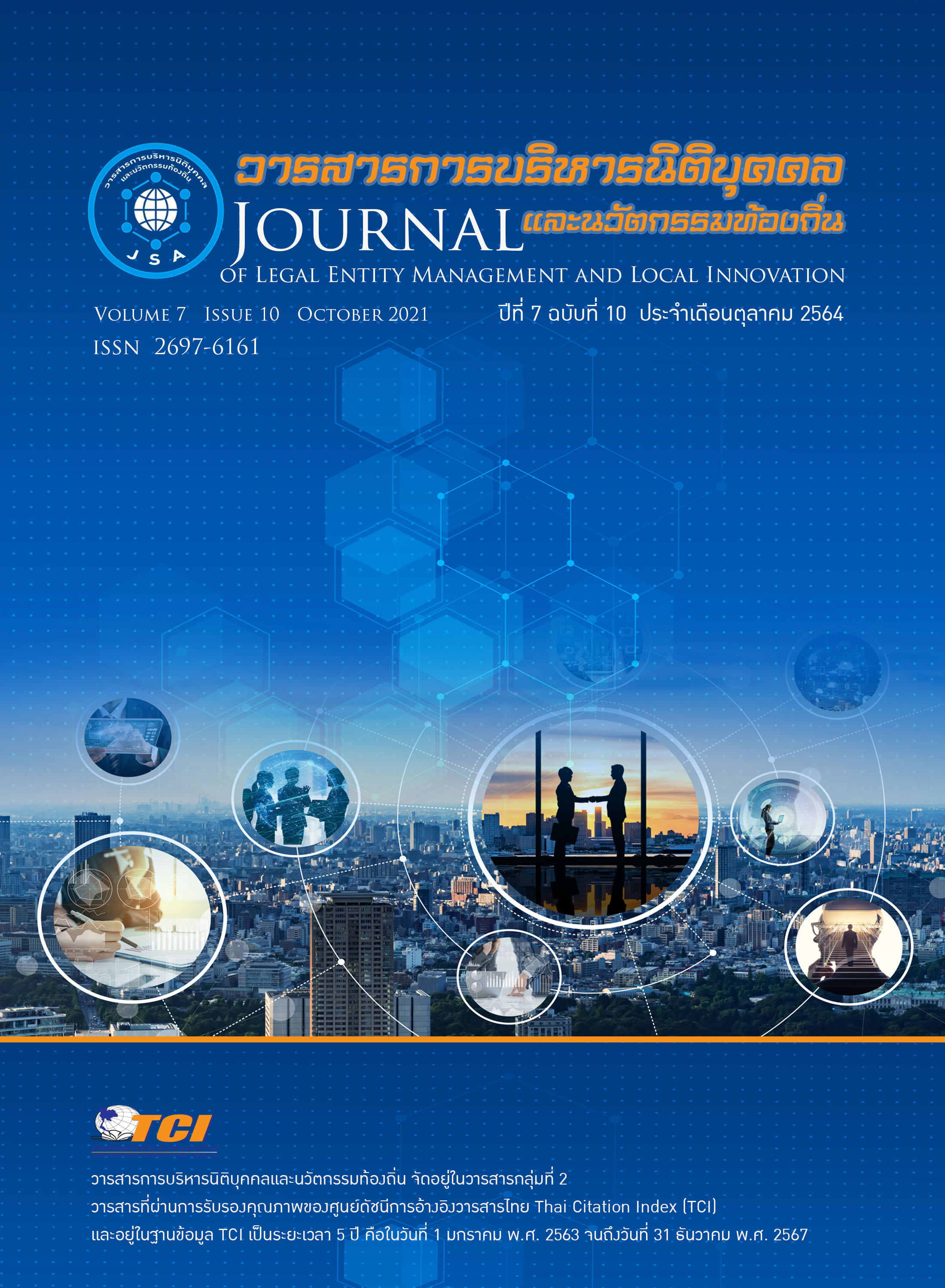Study to Development the Potential of Historical Tourism Personnel Sakaeo Province
Keywords:
Personnel potential development, Historical tourism, Sakaeo ProvinceAbstract
This research aims to study the guidelines for developing the potential of historical tourism personnel Sakaeo Province. This research is a qualitative research using an operational method go through the process of planning, operating, observing, reflecting on data. And after that, it goes back on cycle to reflect research. The population and samples used in the research were all sectors involved in the development of historical tourism, comprising local government organizations. Sakaeo Province Tourism The Fine Arts Office 5, Prachinburi, community leaders, people, shop operators and tourists in the location of historical tourist attractions totaling 30 people. The research instrument was a focus group of 3 times, 10 people each time. The key issues in the group discussion were identified according to the research conceptual framework and research objectives. The interview issues were pre-analyzed from the data collected from the group discussions. Qualitatively analyzed data by content analysis. Summary are important issues to answer research objectives. The results of the research study to develop the potential of historical tourism personnel. Sa Kaeo Province found that tourism personnel need to be trained to have knowledge. Understanding of Historical Sites in Sa Kaeo Province and skills used for building relationships and serving tourists Can accurately explain the history of the castle in Sa Kaeo Province to tourists. Ready to serve Have a passion for service. In addition, there is a personality with proper dress, good manners, which can build credibility and trust for tourists. Guidelines for developing personnel to support historical tourism in order to successfully drive historical tourism in Sa Kaeo Province requires qualified personnel. focus on professionalism honesty professional ethics by developing the potential of historical tourism personnel in 4 important areas, namely knowledge, skills, attitude and personality.


